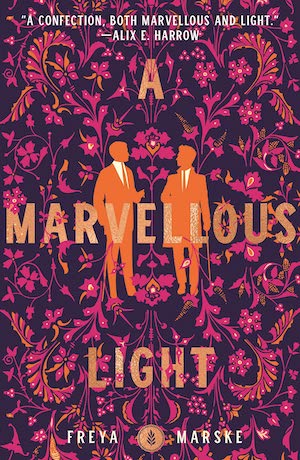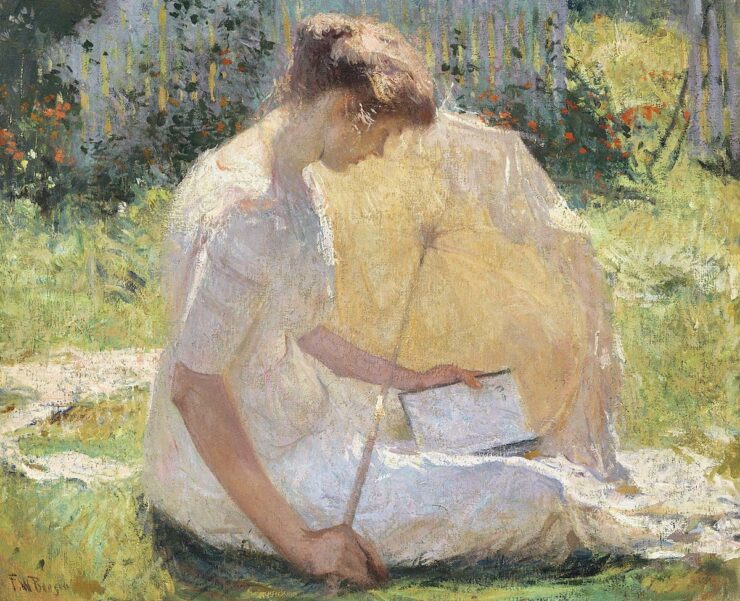For most of my life, I didn’t entirely believe in the idea of the reading slump. I suspect that, like so many things, the concept took form with the social internet, when we could easily complain to each other about those times we just didn’t feel like reading, or couldn’t bring ourselves to pick up a book, or were too distractable to settle into the kind of focus that reading requires. If you weren’t feeling it in the pre-blog era, you just didn’t read for a while.
At this point, the existence of said slumps is a given. As with any reading-related issue, there are endless lists of helpful hints for getting out of reading slumps, lists of books guaranteed to break a slump, and other assorted discussions aplenty. A reading slump is a thing to dread, to avoid, to break as soon as possible. With so many books to read, how can you allow yourself to stop for a while?
If you’re willing to ask yourself a question like that, though, maybe it’s time to accept the slump.
When I was younger, I had no idea that books—that reading—could be a form of fandom. I didn’t know what fandom was for a long time, either; I grew up in the ’80s in rural Oregon without a TV. I didn’t even really understand that authors were living people just like everyone else. I hadn’t the foggiest that Beverly Cleary and Ursula K. Le Guin lived in the same town as my father. It would never have occurred to me to wonder where they lived.
It’s almost hard to imagine growing up in book fandom the way people do now, with access to authors on Twitter and tours (virtual or, someday, in person again) and all of the way authors are expected to make themselves accessible: writing personal essays, maintaining an online presence, being a personality as well as a writer. It’s also hard to imagine growing up with the ways in which that fandom, that love, has been commodified and packaged, even for something as broad as “books.”
What I do know—from being a music obsessive kid, from being a nerd, from growing up on Star Wars—is what it’s like to identify with the things you love so much that they become part of your personality, your identity, and the lens through which you see the world. “[x thing] is not a substitute for a personality” is a meme now, and often a cruel one. It’s an efficient way to diminish a person: attacking them via the things they love, telling them that love isn’t valid.
But loving a thing and demonstrating, performing, displaying your love for that thing—these things can be decoupled. They can go hand in hand, but they don’t have to. And sometimes, it’s better to separate them for a little bit, to tuck your love for a thing into a safe pocket and let it relax, let it take a break, let it exist outside of others’ view. Sometimes it’s good for it to just be yours for a minute.
This, I think, is one kind of reading slump, especially for those of us who are very online book people. Sometimes not reading is really about not participating in online bookish culture, which can be overwhelming and weirdly competitive, and can frequently make a person feel like some kind of failure simply because there is no way to read all the things they think they ought to read. The bookternet is often a wonderful place, full of connections and good memes and brilliant recommendations, but that doesn’t mean we don’t all need breaks sometimes. The book challenges, the reading lists, the 100 [insert genre] books you need to read before you die, the next hot thing, the hot thing from last year that you never got around to: Walk away from all of them. Put down the e-reader. Fire up Netflix. Remember how freeing it is to simply not have an opinion about a thing.
This is not, of course, every reading slump. But if this is the kind you’re in, then rolling a die to pick your next read, or reading the first 10 pages of six random books—these things aren’t going to help. They’re just going to make you feel more cramped and behind. Go find whatever else it is you like to do and do that for a little while. It doesn’t matter if that other thing is just “rewatching Avatar: The Last Airbender from the beginning for the seventh time.” Do it. You need it. You need to feed your brain with something else for a little while, to re-create space for loving to read.
Buy the Book


A Marvellous Light
The kind of reading slump that made me believe in the phenomenon was another kind, and one I’ve heard a lot of people went through: The spring/summer 2020 reading slump.
In March of 2020, I watched 94 episodes of television. In June? One hundred and fifteen. I’ve talked a little about this before: All I wanted, while the world took on a new shape around us, was to watch people being very stressed out in space. I didn’t want comforting stories. I didn’t want books, my lifelong source of comfort, at all.
Probably everyone who experienced this particular slump sees it in a different way, whether it was a matter of shattered attention span, anxiety, fear, grief, uncertainty, or any overwhelming, painful mix of these. For me, reading was too normal last spring. It was too much a thing I’d done through everything else in my life, and I couldn’t do it through the start of the pandemic, which was utterly unlike anything else. I couldn’t find solace in escaping into magical lands or onto a spaceship, at least not on the page. Everything in reality was just too goddamn weird.
You also have to let this kind of slump run its course, or you may find yourself picking up books, reading five pages, and leaving them face-down in increasingly precarious positions around your house, never finishing anything, just building small traps for yourself to stumble over. I slowly crept out of last year’s slump by reading things I didn’t usually read, mostly nonfiction. Marina Benjamin’s Insomnia feels like something I dreamt. Mary Ruefle’s Madness, Rack, and Honey felt like it was about everything. Ada Calhoun’s St. Marks Is Dead took me back to a city I used to call home, a block I used to live on, and gave me a reminder that cycles of life and growth and change continue, often regardless of what goes on around them.
Switching up genres is one of those oft-repeated suggestions for getting out of a slump. If last year taught me anything, though, it’s that what gets a given person out of a slump is as varied as the combination of feelings that pushes them into it in the first place. Maybe your solution is a new genre, a new author, a graphic novel instead of a memoir, a retelling of a story you already know you love. And maybe it’s just depriving yourself of books for a few days, or even weeks. Every relationship needs a breather sometimes, especially the ones with which we shape ourselves.
But if you often find yourself in a phase where nothing satisfies you, I have one suggestion: Set aside a book you haven’t read yet by an author you love. A sort of “break glass in case of emergency” book. When you are dissatisfied with everything and can’t settle on anything and are afraid that any book you pick up is going to be a letdown, then and only then do you crack that set-aside book. My version of this is never catching up on Helen Oyeyemi books. There always has to be one I haven’t read yet, just in case I need it. And I definitely needed Gingerbread this week.
Molly Templeton lives and writes in Oregon, and spends as much time as possible in the woods. Sometimes she talks about books on Twitter.














